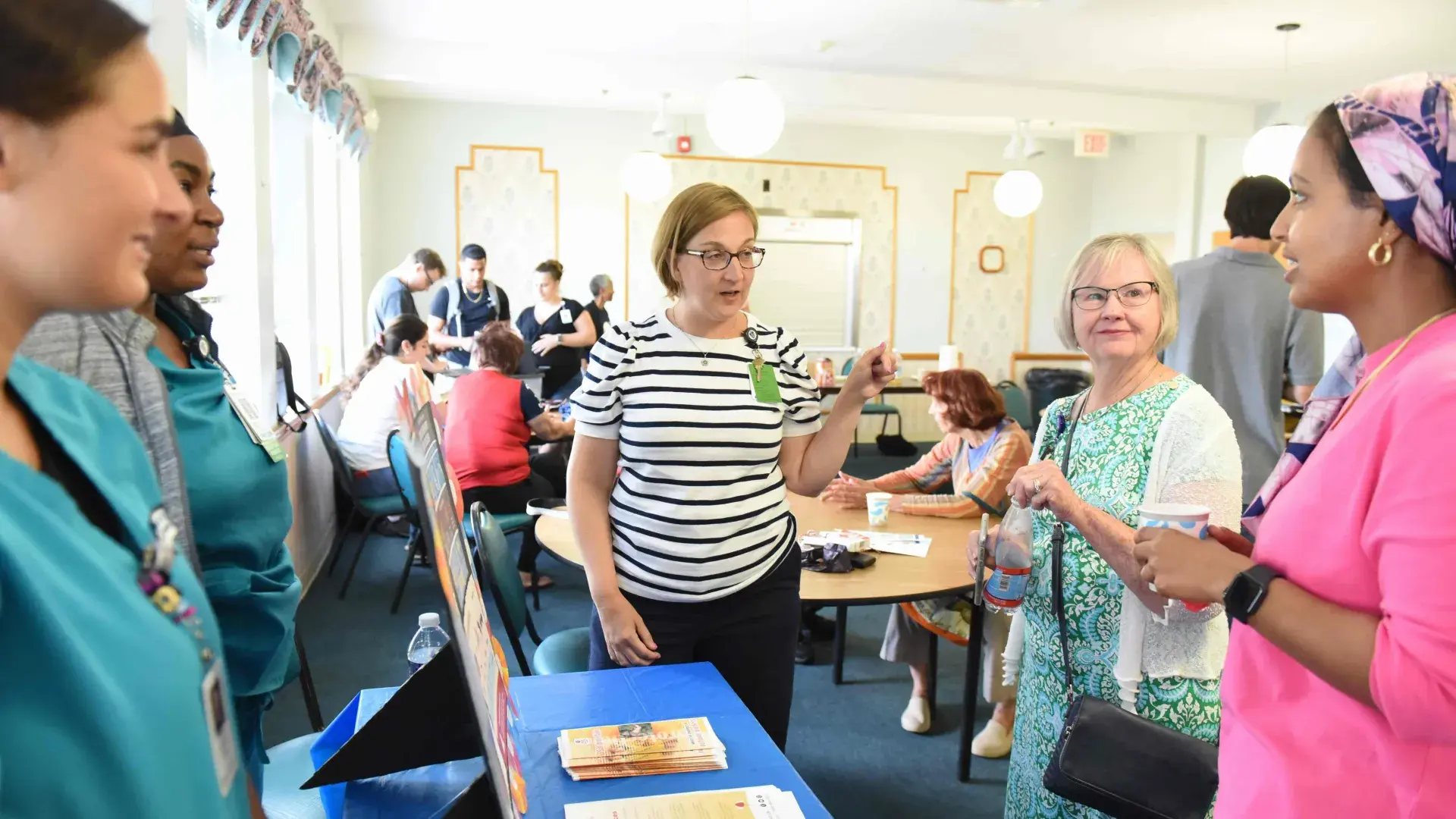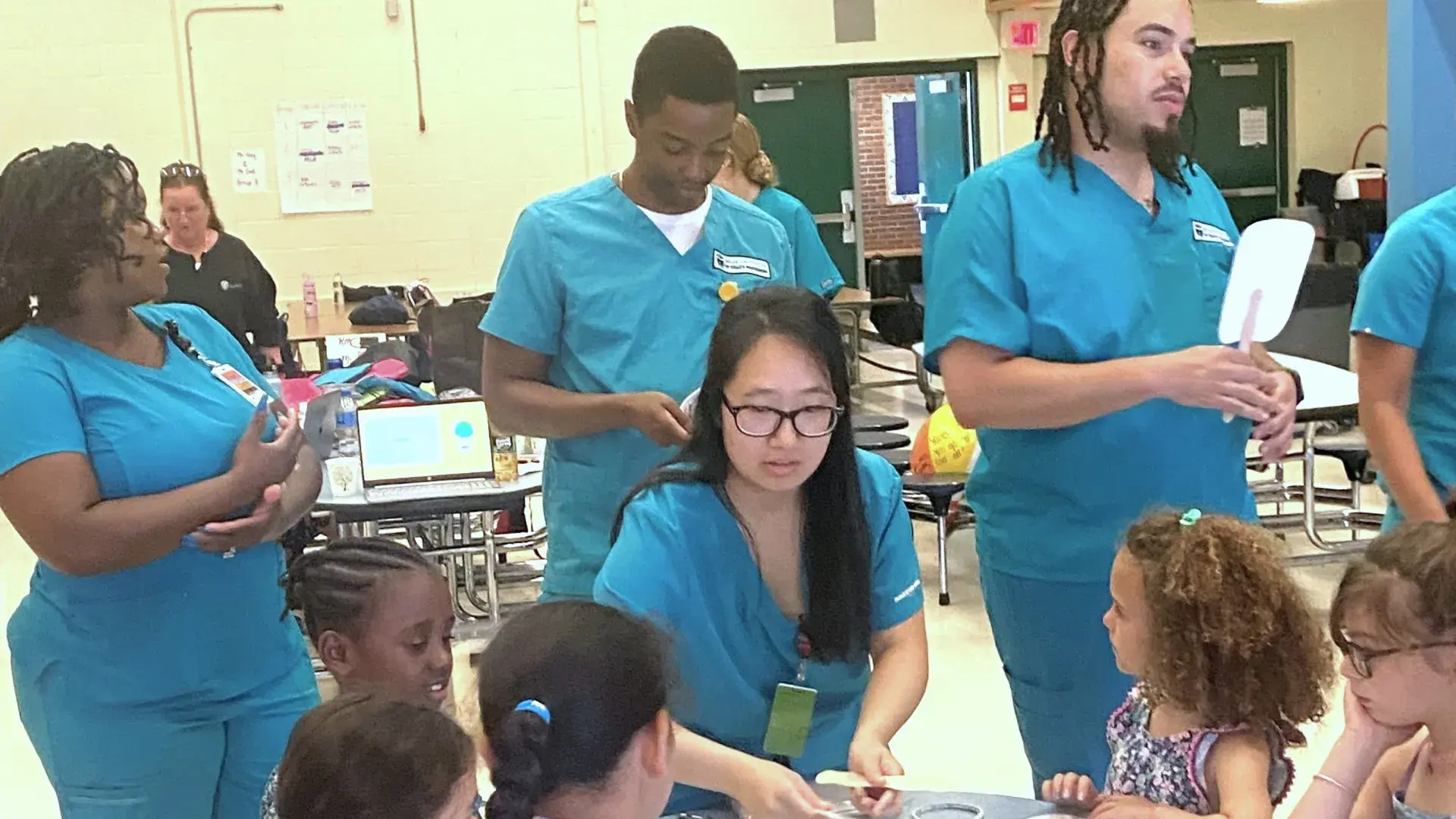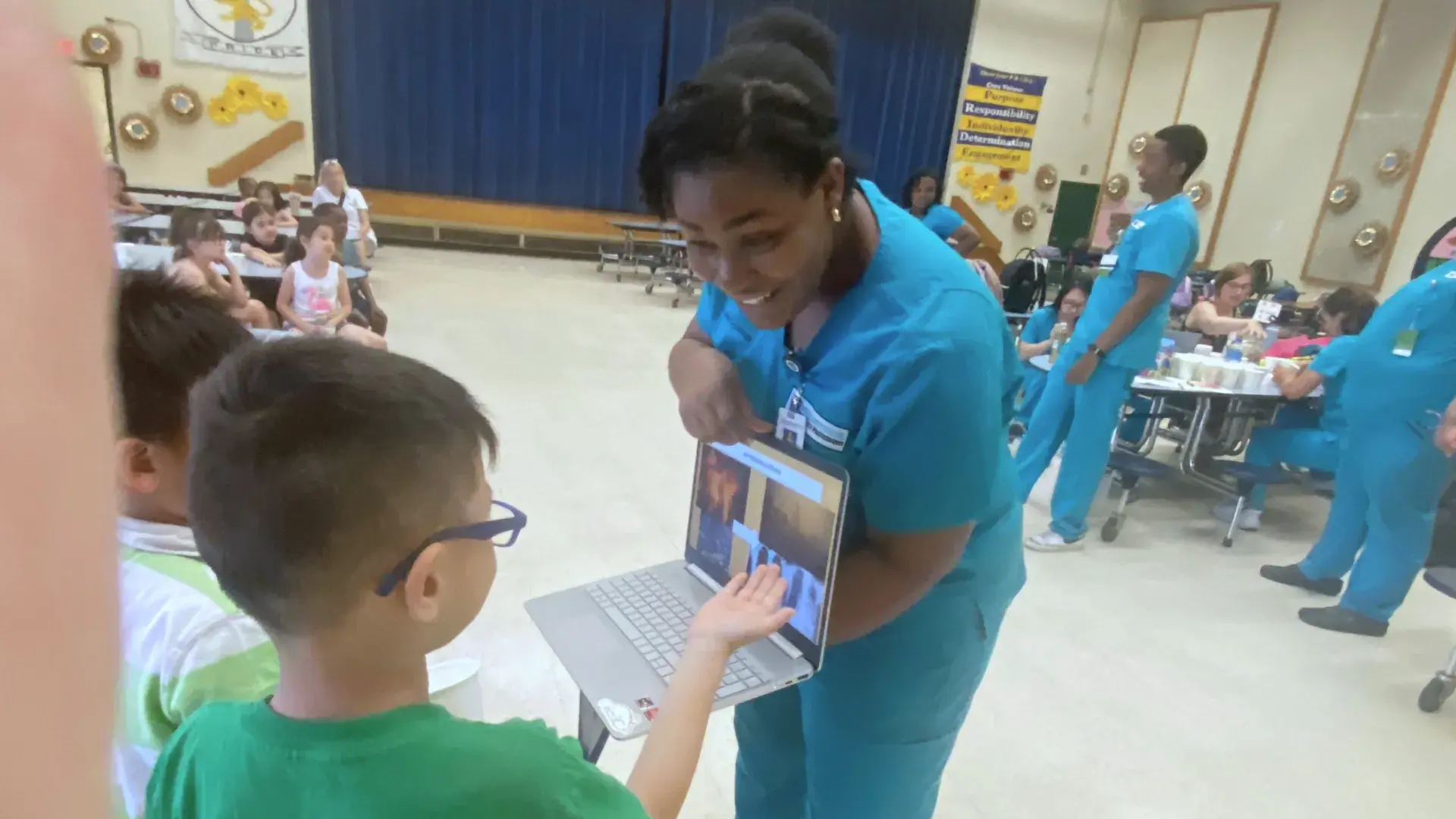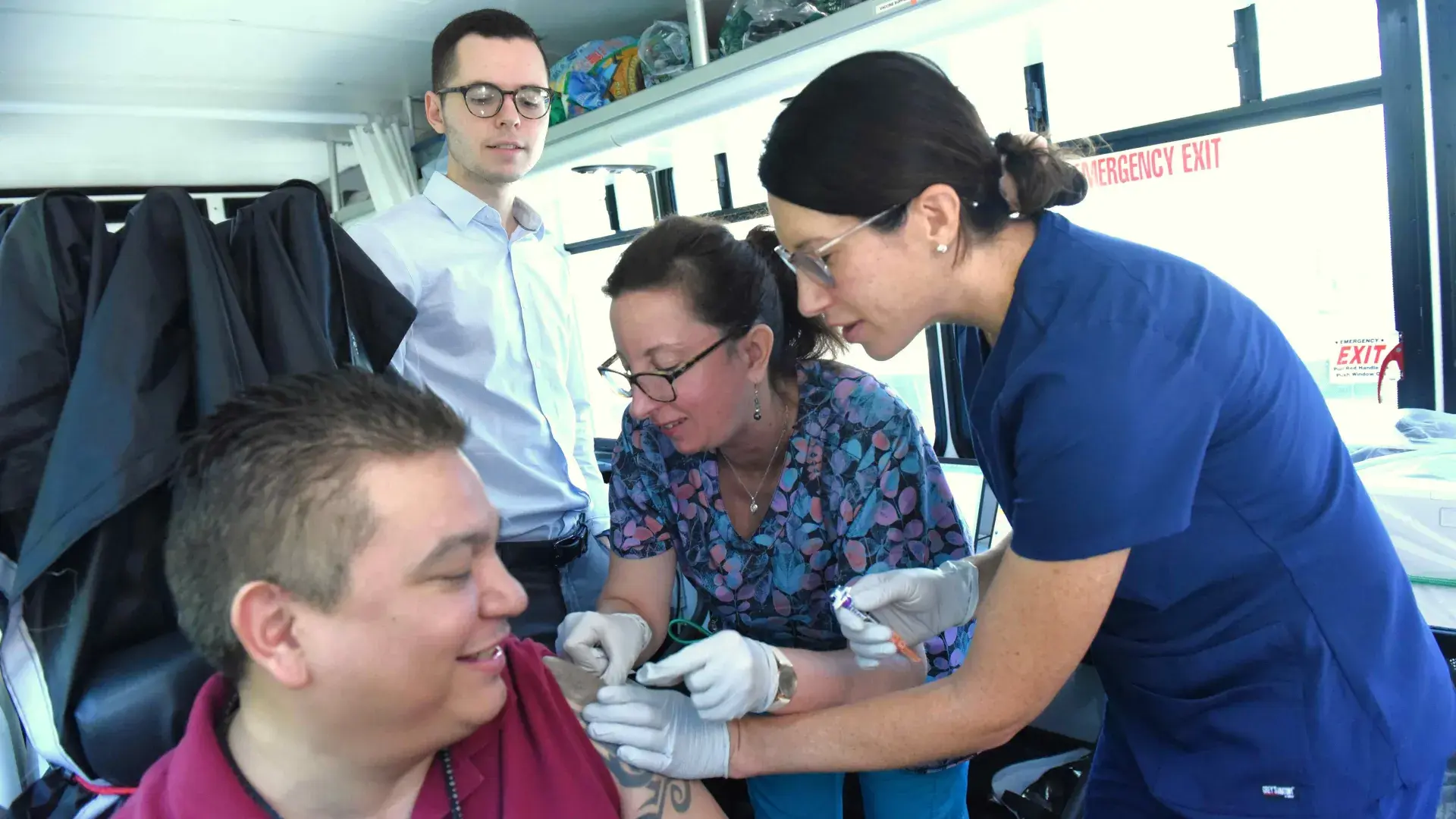
Federal grant to MGH Institute creates initiative to deliver community-based services to underserved neighborhoods with a focus on the health consequences of climate change while collaborating with Mass General Brigham Community Based Clinical Programs.
A grant from the U.S. Department of Health and Human Services’ Health Resources and Service Administration (HRSA) to bring awareness to the effects of climate change while increasing the nursing workforce in historically marginalized communities by developing a nurse led mobile-health service program is a glimpse into the future of healthcare.
“Impacting Health in Partnership: Nurses on the Move Toward Health Equity and Climate Justice” is a four-year, $3.1 million grant awarded to the MGH Institute’s School of Nursing and led by Project Director Dr. Kathy Sabo and in collaboration with Associate Dean of Graduate Programs and Community Engagement Dr. Patricia Reidy. It is an ambitious endeavor intended to knit together several of the school’s efforts to teach students how to provide optimal patient care.
“The health consequences of COVID-19, climate change. and environmental health inequities have emerged as a major public health concern especially in our low-income communities,” said Sabo, noting such conditions as heat-related illnesses, poor air-quality, food insecurity, and mental health needs on morbidity and mortality that need to be addressed. “Through this grant, students are providing nurse-led interprofessional mobile health services to mitigate the impact of climate change, environmental health inequities, and the consequences of COVID-19 with marginalized populations.”
The initiative has multiple segments:
- Expand partnerships between the School of Nursing and community agencies with nurse-led mobile services by collaborating with the Mass General Brigham Mobile Health Services, and by leasing an Institute van to bring students into nearby communities
- Integrate curricular content and experiential learning opportunities through the Institute’s Ruth Sleeper Nursing Center for Clinical Education and Wellness to ensure the knowledge, skills, and abilities necessary to care for low-income communities while addressing climate change and the consequences of the COVID pandemic relative to health equity, social determinants of health, and structural racism
- Incorporate innovative technology to promote climate and environmental health and reduce health disparities as a consequence of the COVID pandemic by developing creative health promotion and education activities with mobile applications and social media, demonstrating telehealth competencies, and gaining telehealth field experiences
- Provide continuing professional development activities and resources on climate change, environmental health, and the social determinants of health for faculty, clinical instructors, and community partners by collaborating with the Institute’s Center for Climate Change, Climate Justice, and Health and the MGH Center for Environment and Health
- Develop a pipeline of nurse graduates with knowledge about the health consequences of climate change who will work in low-income/medically underserved communities and rural communities
Sabo noted the mobile aspect of the project will extend services from the Institute’s Sleeper Center, located within the pro-bono Dr. Charles A. and Ann Impact Practice Center, by offering pre-licensure and advanced practice nursing students unique intra- and inter-professional clinical experiences.



